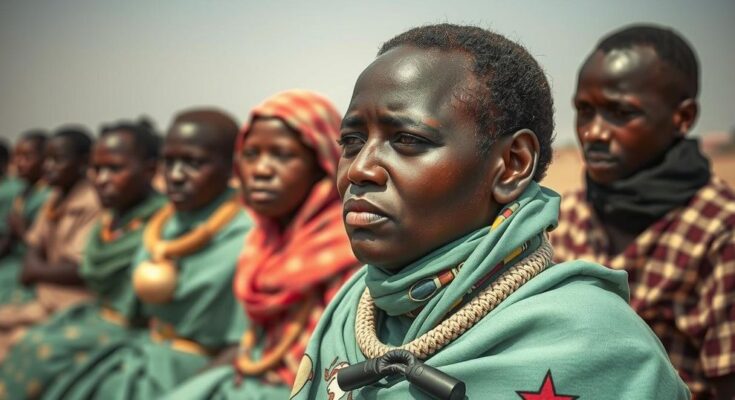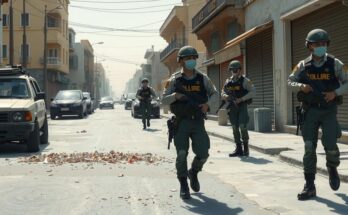The international community has largely overlooked the crisis in Sudan, with the media and humanitarian organizations failing to provide necessary attention. The country now operates with two distinct currencies, reflecting deep divisions between military factions. This situation raises concerns of potential secession, mirroring previous conflicts that led to South Sudan’s division. Without renewed global focus, Sudan risks further disintegration and worsening humanitarian conditions.
The situation in Sudan has largely been neglected by the international community, with the media, the United Nations, and humanitarian organizations failing to provide adequate attention to the ongoing crisis. This oversight highlights a broader pattern of indifference towards Sudan, overshadowed by more prominent global crises such as the Syrian conflict and the war in Ukraine. Recently, Sudan has seen the emergence of two distinct currencies, divided along the lines of military control. This division suggests an ominous parallel to the country’s previous division, igniting concerns of a potential secession similar to that of South Sudan. Despite the pressing need for action, the world remains largely passive, calling into question the sincerity of global concerns for Sudan’s plight.
Amidst this crisis, day-to-day life for Sudanese citizens has become increasingly complicated, as they navigate a fractured nation, now split into areas governed by the Sudanese army and those controlled by the Rapid Support Forces. The lack of operational banks in some regions exacerbates the financial struggles of the populace, leaving many in dire circumstances. The historical context of Sudan’s governance highlights a troubling trend where the nation’s integrity appears threatened with each passing day, reinforcing a narrative that might lead to further disintegration if not addressed adequately.
The narrative surrounding Sudan raises critical questions regarding the global response to humanitarian crises and the attention afforded to nations operating in conflict. Solutions seem to be scarce, and as awareness fades, it becomes increasingly urgent for the international community to renew its commitment to Sudanese welfare. Once again, the hope emerges that divine intervention may offer solace in the absence of human empathy as Sudan continues to exist in the shadows of attention.
Sudan has been engulfed in a multifaceted crisis characterized by political instability, economic hardship, and increasing violence among various factions vying for control. The recent bifurcation of the currency system indicates deeper rifts within the national fabric, reflecting the power struggle between the Sudanese army and the Rapid Support Forces. Historically, Sudan has faced numerous challenges in maintaining unified governance, an issue compounded by prior conflicts that led to the creation of South Sudan. The current situation underscores the need for international awareness and intervention to prevent further deterioration and ensure the welfare of its citizens.
In summary, the crisis in Sudan illustrates a troubling neglect by the international community, rendering the plight of its citizens nearly invisible amidst global priorities. The emergence of dual currencies and the exacerbation of socioeconomic divides serve as dire warnings of a nation on the brink of further division. It is imperative for global actors to redirect attention toward Sudan, advocating for humanitarian efforts and long-term solutions to prevent a repeat of historical grievances.
Original Source: themedialine.org




